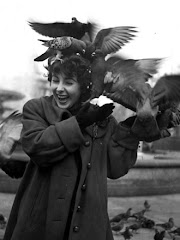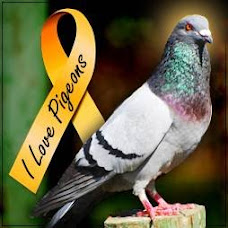December 03, 2003
Family files suit alleging exposure to pigeon poison
By Steve Kanigher
steve@lasvegassun.com
LAS VEGAS SUN
Shortly after moving into a Henderson apartment complex three years ago, Lisa Casey got light-headed whenever she stood up. Her headaches and dizziness led to vomiting. And it got just as bad for her youngest son, Shawn, who became so ill he missed 60 days of school and was held back a grade. Her other two sons also developed aches and pains.
Dr. Michael Casey, Lisa's husband and a surgical resident at University Medical Center, escaped illness. But his concern over his family's health led him to discover what he believed to be the culprit -- a controversial odorless bird poison that is legal in Nevada and throughout much of the country but banned in New York City and San Francisco, as well as in Great Britain.
In a lawsuit filed on Nov. 17, the Casey family alleged they were unwittingly exposed to Avitrol, which is commonly used in Nevada to ward off pigeons. The product is designed to scare off pigeons but kills many of them by attacking their nervous systems.
After first becoming ill in 2000, Lisa Casey had menstrual cycles every three weeks and, because of excessive hemorrhaging, underwent a complete hysterectomy in February 2001, the lawsuit stated. She also went from 130 pounds to 104 pounds in a single month.
Even now, she said she cannot pursue her hobby as an abstract acrylic painter because of low energy and depression.
"I still tire real easily," she said in her Las Vegas home. "I still have seizures and I get stressed out." Shawn Casey, who is now 12, was ill the entire winter of 2000-2001 and was found to have parasites in his gastrointestinal tract. The result was painful cramping. He missed so much school he was forced to repeat fourth grade.
He and his brothers, Benjamin, 16, and Scott, 14, still suffer aches and pains and are no longer able to participate in scouting activities, their parents said. "When Scott runs he starts to blank out and lose his vision," Michael Casey said.
While the chemical agent in Avitrol has been used experimentally to treat multiple sclerosis patients, the U.S. Environmental Protection Agency reported in 1999 that no human poisonings had occurred through "ordinary use" of the toxic substance.
Unique civil lawsuit
What makes the civil lawsuit unique is that the family is attempting to prove that the illnesses were caused by the "ordinary use" of Avitrol -- to ward off pigeons -- but that the bird poison was applied improperly and without their knowledge.
There had been only two reported cases of humans who became ill after accidental exposure to the chemical agent contained in Avitrol, the EPA stated in 1999 in its latest update on the substance.
Those involved two Virginia adults who ingested the poison in 1978, believing it was an aphrodisiac. Both experienced abdominal discomfort, nausea and dizziness and one had seizures and needed a ventilator. They recovered after three days, the EPA reported.
The Casey lawsuit names as defendants Phoenix Pest & Termite Control of Nevada Inc. and the family's former residence, Galleria Palms Apartments at 625 Whitney Ranch Drive in Henderson.
The family alleges that the apartment management initially lied about the use of bird poison on the property.
"I just felt we were treated like cattle," Lisa Casey said bluntly. Phone messages for officials of the pest control company weren't returned. Craig Walsh, senior vice president of operations for apartment manager Standard Management Co., one of the defendants in the lawsuit, said "it was an incident we were aware of" but he had no further comment.
Legal strategy
Attorney Ronald Serota of Las Vegas, who is representing the family, said he purposely did not sue Avitrol Corp., the Tulsa, Okla., manufacturer of the toxic substance, because of legal strategy. But he said he would not be surprised if the lawsuit forced Nevada to ban Avitrol.
"I'm hoping the lawsuit raises public awareness of the dangers of Avitrol," Serota said. "There is a need to use certified applicators of Avitrol on a more consistent basis. Property managers also should tell residents what they're doing when they use Avitrol."
But Avitrol Corp. president Kelly Swindle said he is confident the plaintiffs will be unable to prove that his product caused their illnesses.
"We've actually never had a case against the product," Swindle said. "I feel quite confident that Avitrol was not the problem here."
Avitrol was developed by Phillips Petroleum Co. in the early 1960s and soon became the most widely used pigeon poison in the country. A white powder with the scientific name of 4-aminopyridine, it is added to grain baits such as corn kernels. It is most commonly applied on rooftops after the area has been pre-baited with untainted grains.
The intent, according to the manufacturer, is for a few birds to exhibit abnormal reaction immediately after eating the tainted kernels, scaringoff other members of the flock. The birds who eat the toxic kernels are expected to die, although it can take several hours for that to happen.
Avitrol has been criticized by animal rights activists who claim that too many birds are killed by pest control companies that apply maximum doses and that the slow death by poisoning is inhumane.
The criticism extends to the fact that many of the affected birds go into convulsions and appear to hallucinate before they die and that the poison is indiscriminate because it can kill other birds and mammals.
And the critics argue that pigeons will often return to the same location within months.
"There are more humane ways to solve conflicts with pigeons," John Hadidian, urban wildlife program director for the Humane Society of the United States in Washington, said.
Showing posts with label Department of Environmental Protection. Show all posts
Showing posts with label Department of Environmental Protection. Show all posts
Monday, March 17, 2008
Monday, January 7, 2008
New York City Officials Moving on Pigeon Poaching

FRESH PIGEON SNIT
Crackdown on Bird Poaching
By ANGELA MONTEFINISE and CATHY BURKE
By ANGELA MONTEFINISE and CATHY BURKE
New York Post
January 6, 2008
January 6, 2008
NET WORTH: Swarms of pigeons — even these pests being fed at Flushing Meadows Corona Park in Queens — can mean cash to an unscrupulous few. Some rustlers sell the fowl for $10 each to legal, out-of-state pigeon shoots, the city Health Department says.
According to city Health Department Commissioner Thomas Frieden, several city and state agencies have recently joined forces to combat "pigeon netting," the underground act of snatching pigeons off the streets and selling them for $5 and $10 each, mostly to legal, out-of-state pigeon shoots.
According to bird advocates, men armed with large nets drive around the city - particularly in the early-morning hours, when birds are hungry - and place seed on the ground to attract pigeons. When the birds come to eat, the men throw nets over them, place them in trucks, and drive off.
"It happens incredibly fast," said one advocate. "This is a solid operation. There are usually groups of guys, and they use several cars with switched license plates. They get $5 a bird to ship them off to pigeon shoots, particularly in Pennsylvania. It's cruel, it's wrong, and it's happening right under our noses and no one's doing anything about it."
Anna Dove of the New York Bird Club, who complained of the bird-napping to Queens City Councilman Tony Avella, said she's battled the problem for 10 years.
"We don't know how big it is, but I think it's big business," she said. "Transporting birds over state lines is illegal. They're not allowed to remove them from their habitat unless they have a permit."
Other advocates said pigeon-nappers also sell to restaurants, although they couldn't provide any evidence.
"We've followed the netters to a warehouse in Queens that sells poultry," said one advocate, who also didn't want to be named. "We're still trying to pull together evidence.
"This is not a joke. A lot of people think, 'Oh, pigeons, what's the big deal?' But it is a big deal. These are wild birds, and they're being stolen right off the street. It's not right."
Avella contacted Frieden's office after receiving Dove's shocking complaint.
Avella contacted Frieden's office after receiving Dove's shocking complaint.
"I was quite surprised," he said of the pigeon-poaching phenomenon. "The city's already moving on this. I think their response proves their level of seriousness."
Health Commissioner Frieden, in a Dec. 14 letter to Avella, said his agency, along with "the Department of Environmental Protection, the Police Department [and] the New York State Department of Environmental Conservation . . . are coordinating our resources in an attempt to address this illegal activity."
He added: "At this time, any citizen observing the illegal netting of pigeons can report details of this act by dialing 311."
angela.montefinise@nypost.com
Related article: http://www.upi.com/NewsTrack/Top_News/2008/01/06/nyc_not_getting_safer_for_birds/3879/
Related article: http://www.upi.com/NewsTrack/Top_News/2008/01/06/nyc_not_getting_safer_for_birds/3879/
NYC not getting safer for birds
Published: Jan. 6, 2008 at 6:44 PM
NEW YORK, Jan. 6 (UPI) -- New York City officials are cracking down on poachers trapping pigeons for sale to out-of-state bird hunters and possibly even restaurants.
Bird lovers say the bird-nappers drive through the city in the early morning, tempting birds with seed and then trapping them in large nets, the New York Post reported Sunday. Then they are sold for $5 or $10. Animal advocates gained the ear of City Councilman Tony Avella, who passed their complaint along to the city, the Post said.
In response, Health Department Commissioner Thomas Frieden said he is starting a coordinated effort with other city and state agencies to combat the practice.Concerned citizens who witness pigeon harvesting can inform authorities by calling the city's 3-1-1 citizen access hotline.
Subscribe to:
Posts (Atom)











